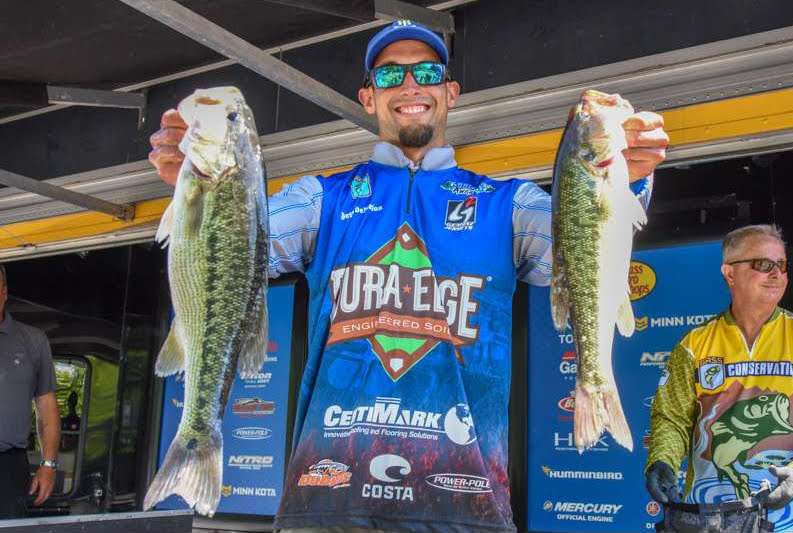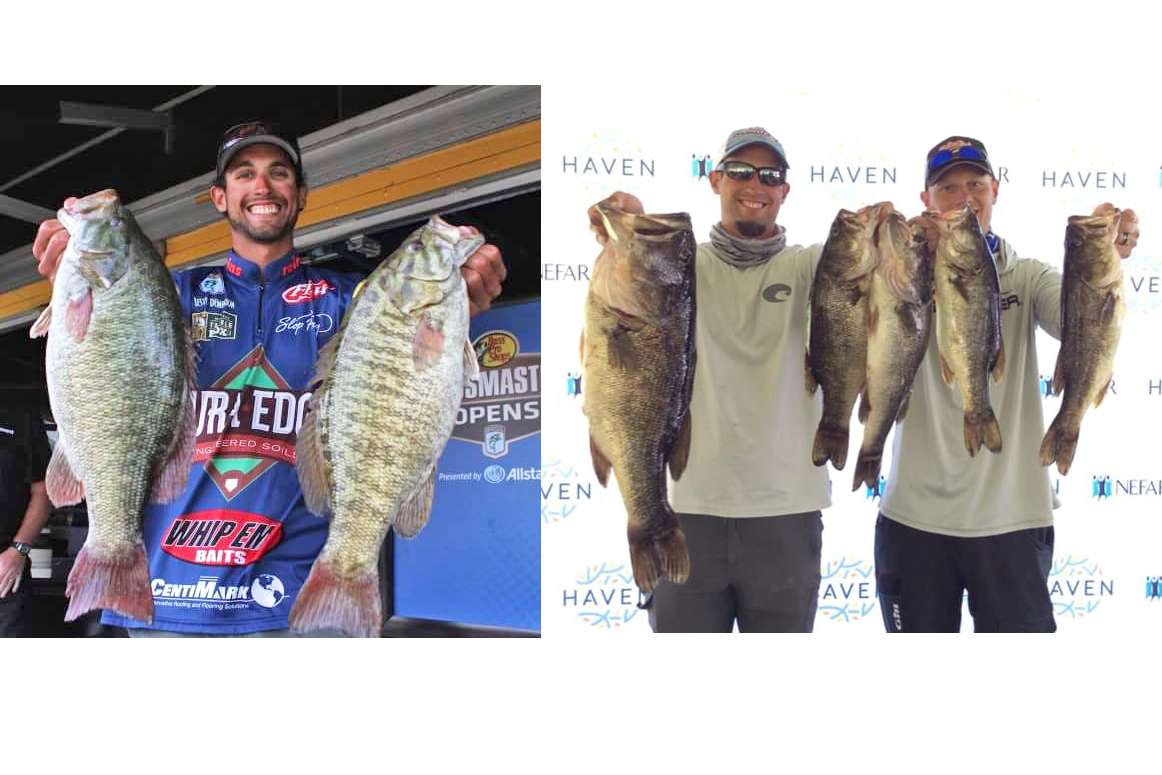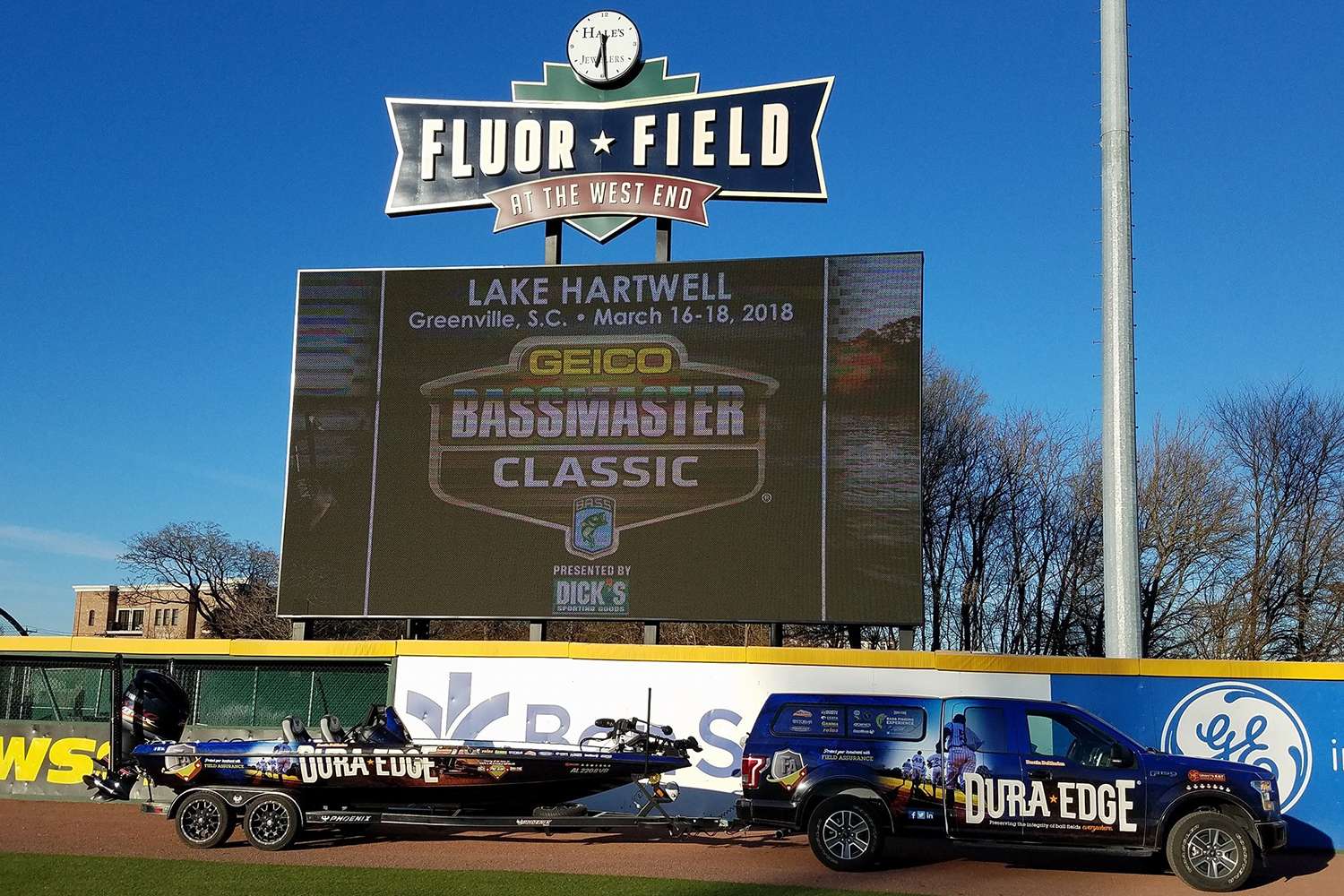
The Bassmaster Elite Series puzzle – or puzzles — is made up of many pieces. First, an angler must figure out how to qualify for the Elite Series. Next, the pro has to learn how to be consistent on the water and ultimately survive when an Elite spot is earned. These are all challenging, humbling steps.
For Destin DeMarion, a pro who calls Lake Erie – Presque Isle Bay – home, the plan to tackle the first puzzle piece began back in his college days. He derived a plan to fish the Bassmaster Opens as a co-angler to learn new lakes and network. Step one.
“I tried to fish the bodies of water that we would end up fishing on the Elites to prepare, especially when I was a co-angler and had a good amount of success. I had never really fished in the South for bass until I fished the Southern Opens in 2013. I had little to no experience in the Central part of the country until the 2014 Central Opens, either.”
Step two – fish the Bassmaster Opens as a pro and qualify for the Elites. Sounds easy, right? Fresh off four years as a co-angler, DeMarion made the jump to the pro side to continue trying to put the puzzle together. For most anglers making the move to fish as a pro, there are common challenges. The biggest of them: money.
“I feel like anglers know when it’s time to move up, and for me, like most guys, money was a big factor. I was fortunate enough at the end of 2014 to start working with DuraEdge Products, my title sponsor and current employer when I am not fishing. DuraEdge manufactures infield soils and products for baseball and softball fields. Funny enough, I connected with the owner after my good friend Kurt Dove ran over his lawn. Things definitely happen for a reason.”

Well, his first go as a pro was an indication of his abilities but also a blessing in disguise. Year one, in 2015, he enjoyed some success right off the bat collecting two checks and finishing eighth in the points standings. His best finish that year was seventh place at familiar Lake Erie. Success in professional fishing, however, is difficult to maintain.
“The years between 2015 and 2019 were much more challenging for me. I would call those the paying-your-dues years. After having success right from the get-go, I feel like sometimes it can be a detriment. For me, being that young and green, it was.”
DeMarion credits the lack of success during those years to changing his approach in tournaments. This led to inconsistency, the blessing in disguise he is thankful for. He doesn’t know why he made a switch in his approach, but he is thankful for learning that lesson while trying to qualify, rather than during Elite competition.

“Every angler has a unique style of fishing and certain strengths and weaknesses. When we figure those out, we can maximize what we are good at and make it work at most places around the country.”
Going back to the fundamentals and “fishing free,” as he describes it, created ample success in 2019. He cashed checks at all four Bassmaster Eastern Opens in route to finishing second in the points standings. He also qualified for the 2020 Bassmaster Elite Series. The first puzzle was complete.
How does he feel about his college-derived plan and the actual qualification process through the Opens?
“I really don’t think they could have devised a better system than the current Bassmaster Opens series to get you ready for the Elite Series. A lot of guys were opposed to the switch from the Northern/Southern to the Eastern/Central Opens because of the travel aspect, but I think it’s the best thing they could have done. The Eastern Opens in particular force you to be a versatile angler, and that is a pretty good representation of what the Elite Series schedules are like.”
He credits his time as a co-angler for completing the puzzle of qualifying for the Elite Series, but his time spent as a guide also played a big role. Not only a role in completing the first puzzle, but in being consistent in his rookie year on the Bassmaster Elite Series as well.
Since 2015, while he was working for DuraEdge and competing as a co-angler, DeMarion was operating a guide service on Lake Erie in Pennsylvania. Similarly, beginning in 2016, he was fully operational on the St. Johns River in Palatka, Fla. He considers this fishery to be his second “home water.”

Going from winter fishing in Florida to summer and fall fishing up north is about as opposite as it gets. Each approach is a different animal in its own right – largemouth bass down south and smallmouth bass up north. The combination doesn’t seem to be a bad thing to mix in while preparing for the Elite Series.
“Guiding on Erie has taught me a lot about fishing in weather. A lot of days, the main lake isn’t even safe to fish. Paying attention to things such as NOAA forecasts and just being cautious with your customers is something I have to think about often. Wind very much factors into what areas are fishable on a day-to-day basis. The wind direction affects the bite a lot on the Great Lakes, but also all around the country. Mostly, a north or east wind is accompanied by tougher fishing conditions wherever you are – north, south, or in between. A bass is a bass around the country … until you get to Florida.”
Florida bass are different, but with many top-level events in Florida every winter, and much to learn from the stingy bass, guiding in the area also pays dividends. While being much more affected by weather conditions, they also seem to shut down during cold-front conditions.
“It’s hard to fully grasp it until you’ve experienced a few cold fronts there. The big thing that the experience has taught me is to really slow down – paint-drying slow.”
Catching bass in Florida has helped him in general as an angler, and now Florida strain bass have been stocked in more and more bodies of water around the country. Understanding how these bass act during various conditions has helped tremendously in other tournaments.
“One of the biggest things that has translated across the country is being able to sight fish or bed fish more effectively for largemouth everywhere. The St. Johns River is probably one of the best places in the country to learn how to bed fish because the spawn cycle lasts for many months.”
Chasing the spawn up and down the river throughout ever-changing weather conditions and fronts is key as the bass will spawn at different times and in different waves, from one section to another.
The opportunity to continue learning on the water is one of the things DeMarion appreciates about the sport. Once you understand an approach, it changes. Being consistent and weathering the “learning opportunity” tournaments is the path to longevity as an Elite Series pro.
“I’m still learning new things all the time, and that is what I love about this sport. No matter how old you are or how experienced you are, you can always learn new things.”
DeMarion’s 40th-place finish at his first Elite tournament in February was definitely a learning experience. After all, the St. Johns River is the pro’s second home water. Then again, the second puzzle is still being put together.

